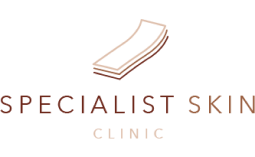The Truth About Sensitive Skin

Sensitive Skin
SENSITIVE SKIN IS A TERM WIDELY USED BY BOTH THE LAY PUBLIC AND PHYSICIANS. THE SKINCARE INDUSTRY IS flooded with products specially designed for women and men who claim they suffer from sensitive skin. Forty to 50 per cent of women and 30 per cent of men in the US, Europe and Japan have reported that they have sensitive facial skin; and some studies have suggested that Asian skin is more sensitive than Caucasian skin. Even more interestingly, the reported prevalences of self-perceived skin sensitivity appear to have increased steadily over time, particularly among men.
So what exactly is sensitive skin? It is a biological reality, and certainly not the psychological fantasy of fashionable, impressionable women. Sensitive skin can be defined as a condition with increased subjective sensitivity and reactivity of the skin to cosmetics, toiletries and sunscreens in the absence of visible signs of irritation. Some of the most common complaints of affected individuals include itching, burning, stinging and tightness sensation. These symptoms may worsen after exposure to dry and cold climates. On occasions, there may be some redness or scaling of the skin, but it should not be confused with eczema and rosacea. Although rosacea may develop as a result of inappropriate treatment of sensitive skin with prolonged use of topical steroids.
Individuals with sensitive skin may have a thinner and more permeable stratum corneum (the uppermost layer of the skin), thus allowing a higher percentage of water soluble chemicals to penetrate the skin. For this reason, the use of cosmetics that are unsuitable for a particular skin type is the most common trigger for sensitive skin. For example, cosmetic formulations containing alcohol, propylene glycol, alpha hyroxy acids and trichloroacetic acid can often trigger or aggravate sensitive skin. In addition, environmental factors such as heat, wind, sun, and pollution are all known to trigger sensitive skin reactions. Low environmental humidity - as commonly experienced in air-conditioned spaces - reduces the water content of the skin and has been known to heighten the expression of sensitive skin symptoms.
Individuals suffering from sensitive skin frequently resort to trying to manage their problem themselves. However, if the incorrect range of skincare products are used, the symptoms tend to become even more aggravated instead. In many such cases, by the time the patient sees a physician, the skin condition may appear as if it were eczema instead of sensitive skin and therefore prompt a different form of treatment: namely, the use of topical steroids which can often cause the skin to become even thinner.
Gentle cleansers and effective therapeutic moisturisers remain the key to successful treatment of sensitive skin. Some effective strategies to minimise the aggravation of sensitive skin include:
- Use facial products specially designed for sensitive skin. These should be fragrance-free and contain few ingredients.
- Avoid soaps. Soaps dry and expose the skin to irritants. Use soapless cleansers (eg. Cetaphil® gentle skin cleanser, La Roche-Posay physiulogical cleansing gel, Avene gentle cleanser).
- Use effective moisturisers. Moisturisers improve skin hydration, reduce susceptibility to irritation and restore the integrity of the stratum corneum (the uppermost layer of the skin). (eg. Cetaphil® Restoraderm® skin restoring moisturiser, La Roche-Posay Toleriane cream).
- Apply the least possible number of cosmetic products.
- Avoid products containing alpha hyroxy acids, retinaldehyde and tretinoin.
- Avoid exfoliating masks.
- It is recommended to avoid all cosmetic products for three months (apart from cleanser, moisturiser, sunscreens and basic makeup) and progressively re-introduce them one by one every two weeks after improvement of symptoms.
The large majority of individuals with sensitive skin never attend a dermatological clinic. As we now have a more enlightened understanding of the condition and effective skincare products specially designed for sensitive skin, it is timely that the public should be made aware that a proper dermatological assessment is needed to treat chronic sensitive skin.

| Main Line | : (65) 6734 1411 |
| Fax | : (65) 6235 5900 |
| Mon - Fri | : 8:30am - 5:00pm |
| Sat | : 8:00am - 1:00pm |
| Closed on Sundays and Public Holidays | |

